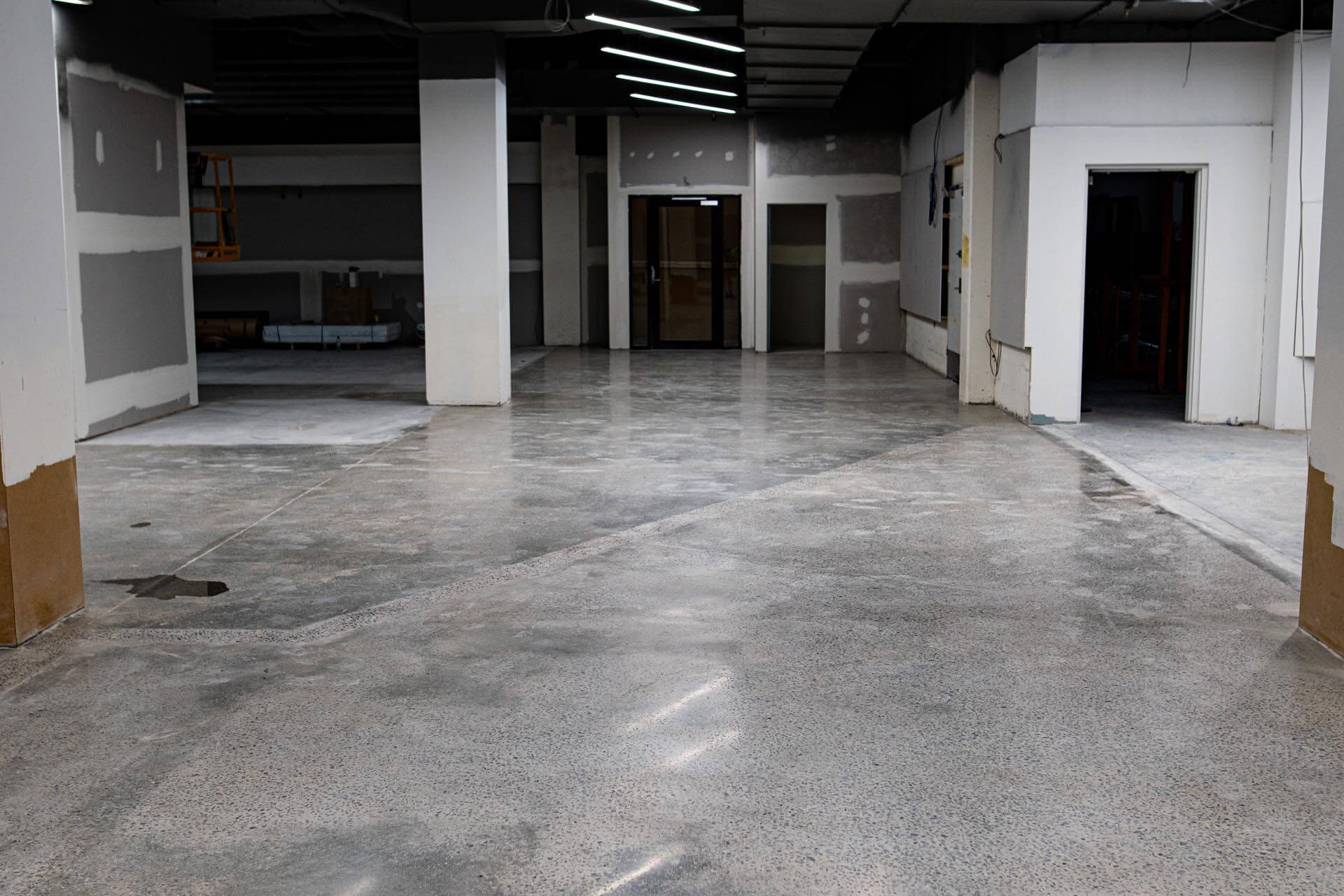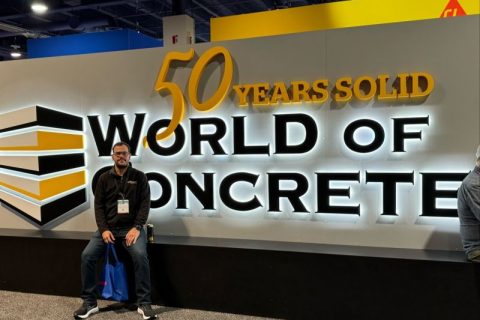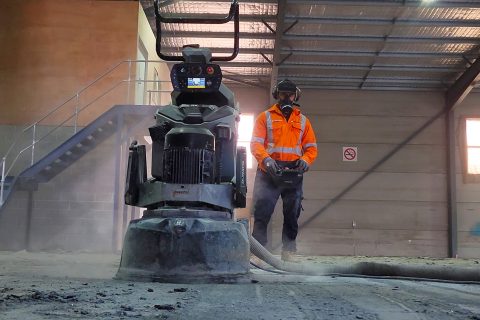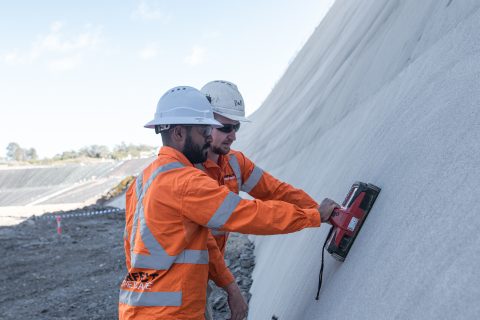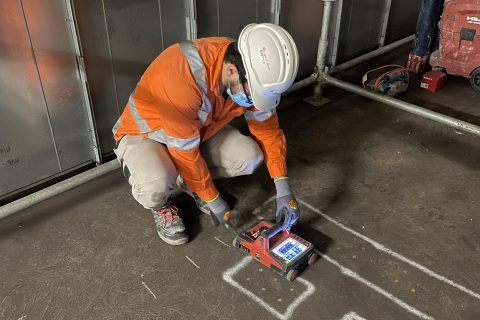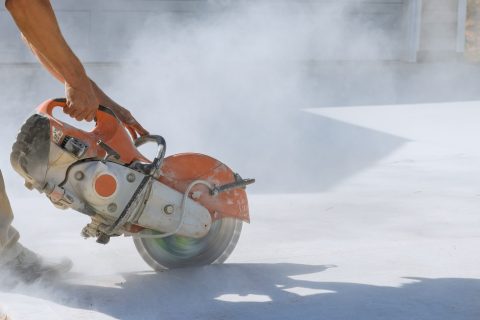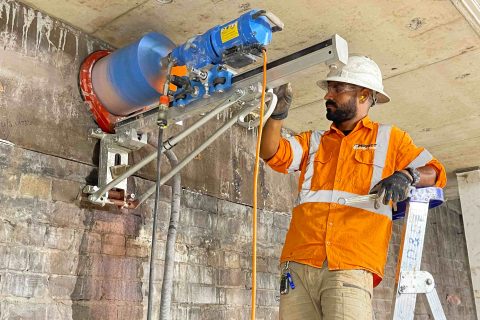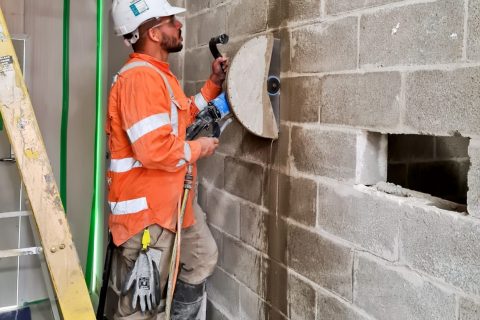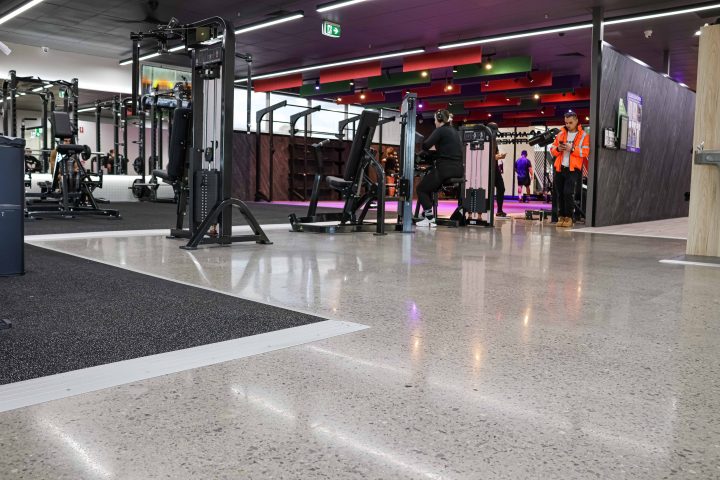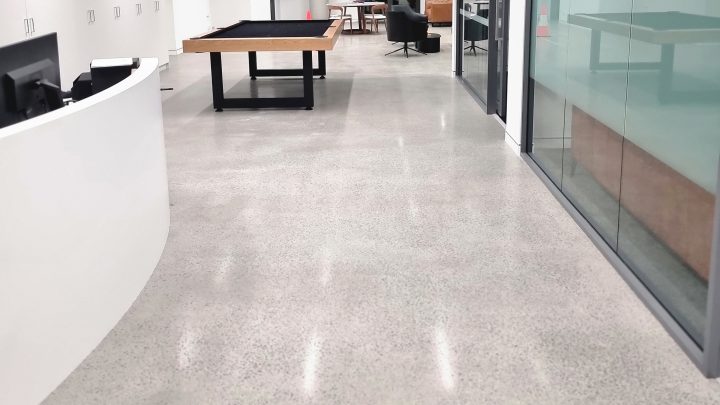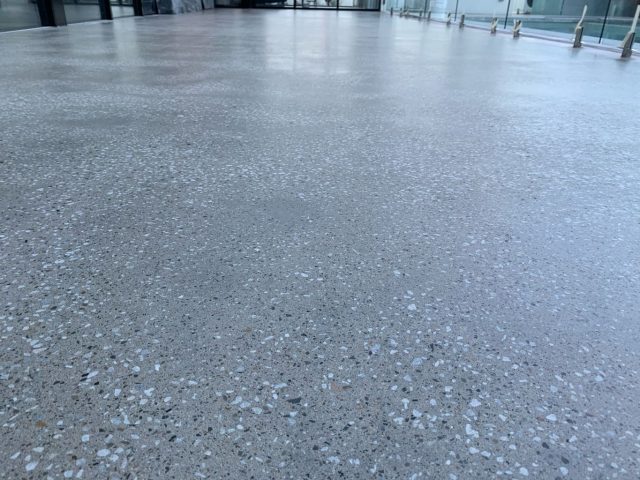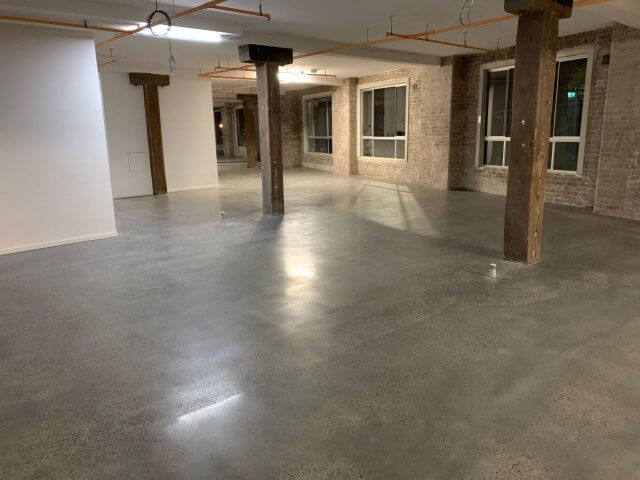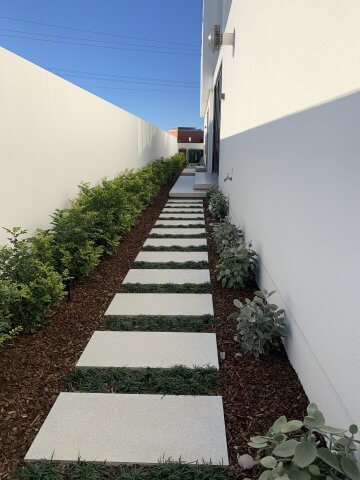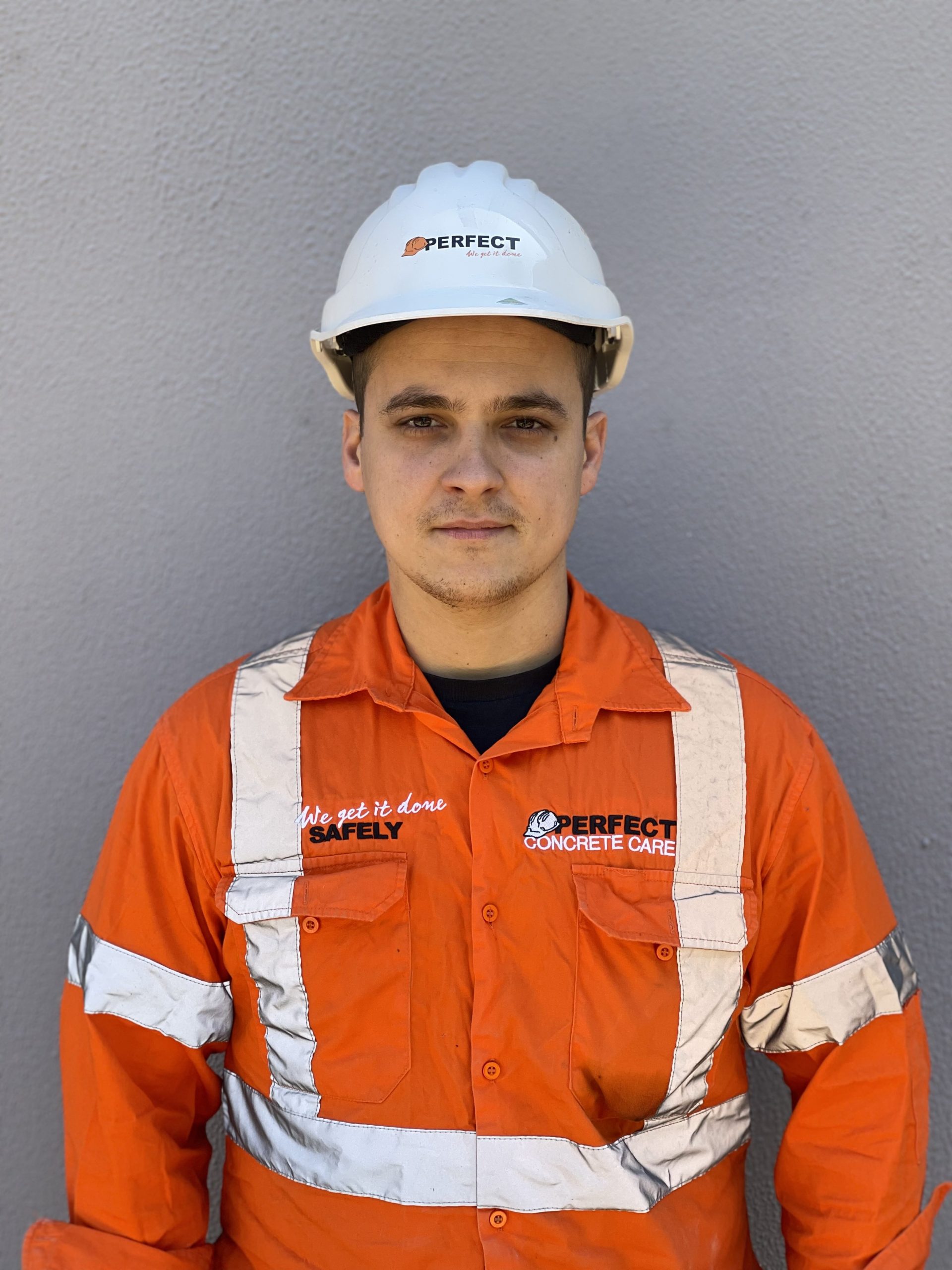Polished concrete is achieved by mechanically polishing a concrete surface using diamond-encrusted floor grinding shoes. It will give your concrete a shiny, buffed look. The short answer to our question is that almost any concrete floor or surface can be polished. But there is a range of factors to consider, especially when it comes to polishing old concrete before you decide to proceed.
Polishing new concrete floors
If you’re installing new concrete floors and wish to have them polished, you generally won’t encounter any issues regarding their suitability for polishing. It is recommended to wait at least four weeks from the time of installation, to ensure adequate curing. You may also want to specify to the contractor responsible for installation that you intend to have them polished so that they can make the surface as smooth as possible for an easier polishing process.
Polishing existing concrete floors
When it comes to existing concrete surfaces, these usually require some preparation work prior to polishing, to remove any coatings, blemishes, dirt, or grease. Some older concrete floors, however, may not be good candidates for polishing. Particularly if they are extremely soft, wavy, have been previously repaired or renovated, or require extensive patching. You may wish to get your existing concrete floors assessed to determine whether they are suitable for polishing.
Concrete strength
Concrete that’s engineered for polishing is usually specified between 32 and 40 MPA compressive strength. The foundation of a typical ground-level house is usually specified at 25MPA. Concrete under 32MPA may be considered too soft for polishing. However, a high quality concrete polisher may be able to densify the surface and still achieve good results.
Concrete imperfections
When preparing a concrete floor for polishing, the very top layer of the surface will be removed. This can sometimes reveal imperfections that were previously concealed, such as fallen leaves and twigs, footprints, or cigarette butts that ended up in the slab when the foundation was being poured. These imperfections may mean that your concrete isn’t suitable for polishing.
Additionally, if the concrete surface you’re wanting to polish was previously covered with carpet, timber, laminate, or tiles, these can reveal imperfections such as chips, stains, or small holes from the bolts used. It’s a good idea to have a concrete specialist pull up some or all of the floor covering prior to deciding whether to polish your concrete, if possible, to assess the condition of the surface underneath.
If your existing concrete floors aren’t perfect, but you’ve got your heart set on a polished finish, don’t worry – there’s likely to be a way for a good contractor to salvage the surface and prepare it for polishing.
Alternatives
While polished concrete is without a doubt a classy and modern choice for any concrete floor area, it’s also a fairly expensive process. It can take a lot of time since it requires anywhere between 12 to 18 passes with the floor grinders, plus the application of a chemical hardener between each pass. Here are a couple of popular alternatives that you may wish to consider.
Grind & Seal
A grind and seal finish is the most common alternative to concrete polishing. It is in fact what many customers have in mind when they think they’re after polished concrete. A grind and seal finish will give a smooth, matte satin look to your floor, and is perfect if you’re looking for a rustic or industrial finish, such as that featured in many modern cafes and restaurants, as well as gallery spaces and boutique retail establishments. It’s a highly cost-effective option, and also helps to protect the concrete surface from stains and spillages.
Cream Finish
A cream concrete finish is another more economical option and offers a high-quality sheen that’s achieved by using resin-bonded diamonds. It requires the concrete to be well cured and also specifies a minimum strength of 32 MPA. A cream concrete finish is a perfect choice for industrial areas where a high degree of floor strength is needed. As well as large commercial areas that tend to experience high levels of foot traffic.

